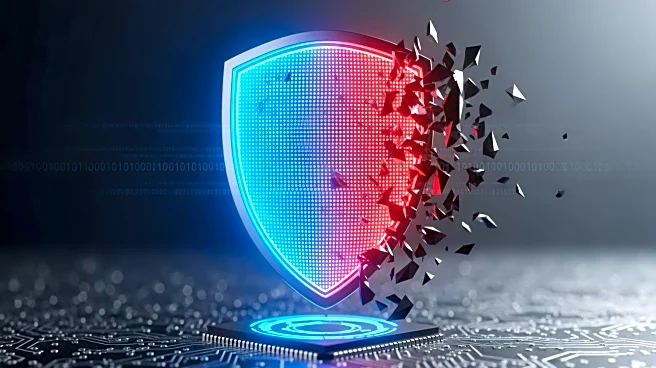What's Happening?
The cybersecurity landscape is facing new challenges as adversarial AI bots are increasingly being used by attackers to enhance their capabilities. At a recent SecTor conference, discussions highlighted
the potential of AI to elevate script kiddies into elite hackers, posing significant threats to security systems. While AI holds promise for improving cybersecurity defenses, current applications mainly automate existing processes rather than introducing new defense strategies. The asymmetry problem is exacerbated by AI, giving attackers systemic advantages. Notably, XBOW, an autonomous pen-testing bot, has demonstrated its capabilities by topping the HackerOne leaderboard, showcasing the potential of AI in both offensive and defensive roles.
Why It's Important?
The rise of adversarial AI bots represents a significant shift in cybersecurity threats, with potential implications for industries reliant on digital security. Companies may face increased risks as AI tools enable more sophisticated attacks, potentially leading to financial losses and compromised data. The need for innovative AI-powered defense strategies is critical to counteract these threats. As AI technology evolves, businesses and security professionals must adapt to protect sensitive information and maintain trust in digital systems. The development of autonomous threat hunters could be pivotal in addressing these challenges, ensuring robust defenses against AI-driven attacks.
What's Next?
The cybersecurity industry is likely to see increased investment in AI-driven defense mechanisms to counteract the growing threat of adversarial bots. Companies may prioritize research and development in AI technologies to enhance their security infrastructure. Collaboration between AI developers and cybersecurity experts could lead to the creation of more effective threat detection and response systems. As AI continues to evolve, ongoing monitoring and adaptation will be essential to stay ahead of potential threats. Stakeholders, including government agencies and private enterprises, may need to establish new protocols and standards to address the unique challenges posed by AI in cybersecurity.
Beyond the Headlines
The ethical implications of AI in cybersecurity are profound, as the technology can be used for both protective and harmful purposes. The development of adversarial bots raises questions about the responsible use of AI and the potential for misuse by malicious actors. Legal frameworks may need to evolve to address the complexities of AI-driven cyber threats, ensuring accountability and compliance with international standards. The cultural impact of AI in cybersecurity could lead to shifts in how digital security is perceived, with increased emphasis on proactive measures and the importance of AI literacy among security professionals.









